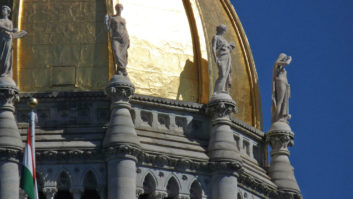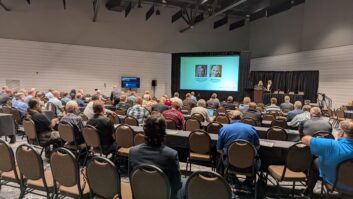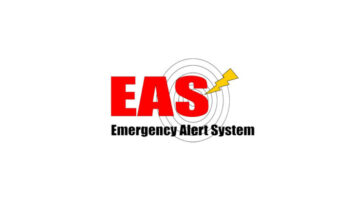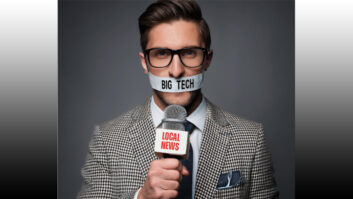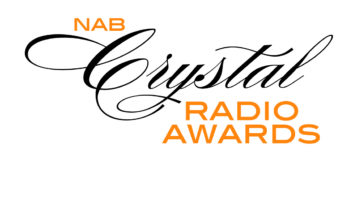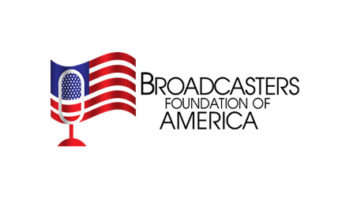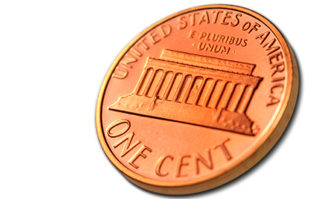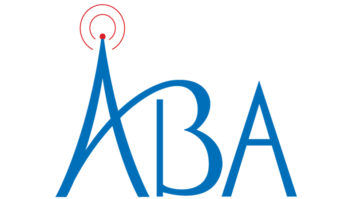LAS VEGAS� As the 2016 NAB Show opened, NAB President and CEO Gordon Smith reminded broadcasters that the industry, like the nation it serves in this election year, is faced with choices.�

�
�Each NAB Show presents broadcasters with choices that could impact their futures and gives us the chance to seek new directions and make changes, where warranted, so we can continue to deliver the best live, local content to our listeners, when and where they want it.�
�
Smith said radio�s future lies in being available on every device and making choices that support its innovations.
�
�Radio�s audience continues to evolve, and we must continue to evolve with them.� He noted ongoing efforts to persuade cellular carriers to activate FM radio receivers in smartphones. Commitments from AT&T, T-Mobile and Sprint will provide more than two-thirds of U.S. mobile phone users with access to a free entertainment and emergency information option through FM radio in smartphones, he said. �We hope Verizon and others will join them soon.�
�
Smith also noted the importance to industry of �ensuring radio�s rightful place in the automotive dashboard of the future.� He said emphatically: �We know that radio is what drivers want most, and we�ll also ensure that Detroit knows it.�
�
�The future of radio also hinges on our ability to adapt and innovate, and we continue to fight for policies that enable stations to deliver their content across emerging platforms,� said Smith.�
Read the full text of his keynote below.
�
The session also included remarks by Ben Sherwood, co-chairman of Disney Media Networks and president, Disney|ABC Television Group, and it concluded with the presentation of the NAB Distinguished Service Award to ABC News Correspondent Bob Woodruff.
A version of this article was originally posted on the website of Radio World, sister publication of Radio magazine.�
�
* * *
Remarks by NAB President and CEO Gordon Smith in his NAB State of the Industry address at the NAB Show in Las Vegas, as prepared for delivery and provided by NAB:
�
Good morning everyone, and thank you all for being here.�
You are a most welcome sight at this early hour.�
I can already feel the energy and excitement that you have brought to this show � an enthusiasm born in part by the fact that this year is a presidential election year.�
That means a lot of candidates and pundits burning up the airwaves, along, of course, with their advertising.�
And broadcasters � given our unparalleled reach and local focus � remain right at the center of another political season.�
I�m reminded of what one former presidential candidate, Adlai Stevenson, once said, �The sound of tireless voices is the price we pay for the right to hear the music of our own opinions.�
Governor Stevenson is also the one who, when informed by academics that he enjoyed �the support of all thinking Americans,� responded: �That�s not enough. I�m going to need a majority.�
It is true that we are in an age of information overload, such that bumper sticker simplicity � like �Feel the Bern� or �Make America Great Again� � often moves votes� with conservatives declaring, �Whatever it is, I�m against it,� and liberals proclaiming, �Whatever it costs, I�m for it.�
Indeed, it�s just as Will Rogers once noted: �The more you read and observe about this politics thing, you�ve got to admit that each party is worse than the other.�
It is fun to poke fun at politics, but it is also true that presidential election years serve as important reminders of the vital and crucial role that broadcasters play in preserving a healthy democracy.
Now, in every election year, it is common to hear politicians in both parties proclaim that America is at a crossroads � that if their side doesn�t win, the nation will have chosen a road that leads to doom and disaster.�
Apparently, this year, that belief may be even stronger than in the past.�
But, thanks to the wisdom of the founders of our nation and the separation of powers they created, protecting our liberties and preventing anyone from possessing dictatorial powers, such predictions seem little more than electioneering hyperbole.�
Rest assured, the American experiment in self government is an enduring miracle and it has produced a durable and remarkable nation.�
In a smaller sense, each election presents us with a serious choice � a chance at course correction or a way to make necessary changes in order to improve the quality of our lives � a crossroads, if you will.
In a similar way, each NAB Show presents broadcasters with choices that could impact their futures, and gives us the chance to seek new directions and make changes where warranted so we can continue to deliver the best live, local content to our viewers and listeners, where and when they want it.�
As a recovering politician, and after seven years at NAB, of one thing I am certain � no matter the choices we make, the American people will always count on broadcasters to deliver the best content and most trustworthy news and information.�
In good times and in bad, when danger lurks or when history is being made, our local communities know broadcasters will be there for them.�
That�s what they expect� that�s what they deserve.�
But this is a challenging time.�
As the media industry becomes increasingly fragmented, it can be overwhelming to process all the information available to us.
I am reminded of what the great poet T.S. Elliott once asked, �Where is the wisdom we have lost in knowledge, where is the knowledge we have lost in information.�
Notwithstanding this chaos, just as we�ve done in the past, broadcasters will continue to find opportunity in the choices we make � choices that allow broadcasters to continue serving the American people by� …covering emergencies and keeping communities safe� …by raising awareness of the issues that impact their lives� …by providing good jobs and essential information that contribute to our local and national economies� …and, by uncovering government corruption and private abuses of power through in-depth investigative reports.
In some cases, the investigative journalism units of local stations spend years and countless resources tracking down the truth.�
This is an indispensable service to our communities.
Broadcasters take to heart the responsibility that the freedom of the press grants them under the First Amendment.�
They shine a light on injustice, on what�s wrong, and they empower citizens to take action.
As newspapers continue to struggle � with a little help from outdated FCC media ownership regulations � broadcasters, increasingly, have been carrying the mantle for investigative reporting.�
For broadcasters, it comes naturally to serve their local communities � even under the most dire circumstances, when they, too, are affected by crisis or find themselves in harm�s way.�
There are countless brave men and women across the country � and around the globe � who risk their lives every day as broadcasters, covering wars, disasters, and other emergencies� while simply just trying to do their jobs.�
It is their courage that inspires us at NAB to fight for policies that will ensure a strong future for local radio and television stations.�
This is a pivotal year, as broadcasters and policymakers must weigh what�s at stake with the choices they make.�
Last month, the long anticipated broadcast spectrum auction began.�
It has been an enormously complex undertaking and the FCC deserves a tremendous amount of credit for bringing the auction to this point.�
But once the auction is concluded, we face another daunting challenge as, likely, a majority of remaining broadcasters will have to move their channel to make room for the wireless carriers.�
Now, policymakers should, and I believe will, ensure time and funds are sufficient to allow broadcasters to complete their moves � so that no viewer is left in the dark because a station is forced off the air or left to foot the bill for expenses that Congress did not intend and stations cannot afford.�
Lately, some at the FCC have been so enamored with mobile broadband and Silicon Valley that the Commission�s policy choices have unwittingly put us on an unnecessary collision course toward two Americas � one where the video future is available to those who can afford to pay, and one where they cannot.
I�ve said this before but it bears repeating.�
There is no �higher and better use of spectrum� than serving diverse audiences with free and local TV programming for all citizens.�
And if the FCC chooses to tip the scales on retransmission consent rules, upending the right for broadcasters to fairly negotiate for the value of their signals… and, then, providing more advantages for big pay TV companies, they may guarantee that the content viewers most need, the content they most want and enjoy, well… then that content will only be available to those who can afford it.�
Remember, a broadcast signal is always available with an antenna � and broadcast content is consistently the highest rated and the most watched on television.�
No one but local broadcasters provide this free, ubiquitous public service.�
It seems everyone wants what we have � our content and our spectrum � but nobody wants to do what we do � live and vital localism.�
These unique qualities of broadcast TV should be cherished by the FCC, rather than ensuring its availability only to the wealthy.�
The FCC has another choice before it today.�
A choice that could make TV even stronger and expand its availability to our local communities on new platforms.�
It is no secret that NAB, along with many of our members, has been actively engaged in the development of an ATSC 3.0 � or next generation � standard.�
In fact, I�m pleased to announce that a petition was filed last week by NAB, along with consumer electronics, public safety and public television advocates, asking the FCC to approve a next-gen TV standard for those who voluntarily choose to adopt it.
We are excited about the possibility of higher quality Ultra HD images, theater like immersive audio, interactivity, personalized services, mobility and more.�
The new standard is designed to better align broadcasting�s broadly deployed, spectrally efficient and free service with an increasingly IP based world, enabling broadcasting to more easily integrate into a wide array of popular devices.�
If successful, a new standard would drive competition with other wireless services and video and data providers.�
You can experience some of what the new standard will offer right here at the Show.�
Perhaps the most exciting of all, we have the very first live next gen broadcast demo in the U.S. originating from Futures Park.
NAB is pleased to welcome a large delegation of Korean broadcasters, manufacturers, researchers and government ministers, to showcase this impressive technology.�
We applaud their leadership in this area.�
Now, adopting the next gen standard is voluntary for members; it is an opportunity for you to consider.�
Every broadcaster will have the freedom to experiment with this new technology and explore new business models.
It is our job as your association to ensure you have choices for the future.
It is not our job to make those choices.�
Will next-gen be the best path for your business?
The decision is entirely yours to make.�
Radio�s future also lies in being available on every device and making choices that support its innovations.
A recent media report notes radio�s generational appeal: �Everyone listens to the radio. But not everyone listens in the same way.�
Though Boomers, Gen X�ers and Millennials all spend a lot of time listening to radio, a recent Nielsen report notes that �Millennials have the greatest mass of listenership.�
Some 66-and a half million of them use the radio each week.�
Radio�s audience continues to evolve, and we must continue to evolve with them.�
Broadcasters have worked tirelessly to promote access to radio receivers in smartphones.
Last year, AT&T announced it will unlock FM radio in all of their future Android smartphones.�
T-Mobile soon followed with a commitment to activate FM tuners.�
These major carriers will join Sprint in providing more than two-thirds of U.S. mobile phone users with access to a free entertainment and emergency information option through FM radio in their smartphones.
We hope Verizon and others will join them soon.�
As an industry, we are also focused on ensuring radio�s rightful place in the automotive dashboard of the future.
A recent study on the connected car reveals that radio is indispensable to drivers � it is the most used and most important audio source by far.�
And while many drivers desire interactive features, the great majority also want a traditional radio interface.�
We know that radio is what drivers want most, and we�ll also ensure that Detroit knows it.�
We must and we will continue to retain our rightful place in the automobile, offering not just the radio everyone knows, loves and expects, but, also providing our interactive experience for those listeners who desire it.
In the end, the customer is king and our listeners will decide what they want and what is on the dash.�
The future of radio also hinges on our ability to adapt and innovate, and we continue to fight for policies that enable stations to deliver their content across emerging platforms.�
As a result of NAB�s advocacy, the Copyright Royalty Board recently reduced rates for radio broadcasters� streaming services by 32 percent, certainly a move in the right direction.�
We want reasonable streaming rates that encourage more broadcasters to stream and deliver music in new ways to their listeners.�
This, then, is a win for everyone who loves, makes or plays music.�
Further, NAB continues to successfully educate policymakers on the unique qualities of our medium � one that is locally-focused and free to listeners.
These attributes are unique in today�s media landscape, and should not be undermined.�
This is why a majority of the House of Representatives opposes any new royalty on over-the-air radio.�
As we have so often in the past, we have come together at the NAB Show to make choices that affect our industry.
The choices we make today must reflect broadcasting�s deep roots in communities across America and its strong commitment to public service.�
There is no other industry in the world like broadcasting… …no other industry has, at its core, such an overarching focus on bringing communities together and serving the public good.
No other media industry is as dedicated to supporting our local communities � not Google, not Apple, not Pandora, not cable or satellite.�
We don�t send a bill to our communities for all the services we provide.�
Remembering the passion and courage of broadcasters makes what we do worth fighting for.�
Abraham Lincoln � a man of great courage himself � once said, �It often requires more courage to dare to do right than to fear to do wrong.�
Broadcasters dare to do right by their communities every single day � often risking their lives to do so.�
For them, there is no other choice but to serve their listeners and viewers.�
It is, therefore, for me, a high honor and a particular pleasure and privilege to represent such an industry.
To give this industry�s lion�s roar to those in our nation�s capital charged with making law and policy for the benefit of We the People, all the people, of the United States of America!�
Thank you!�
